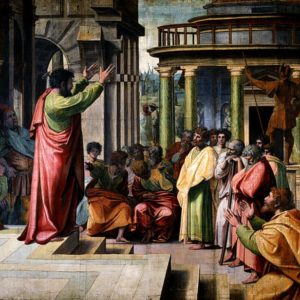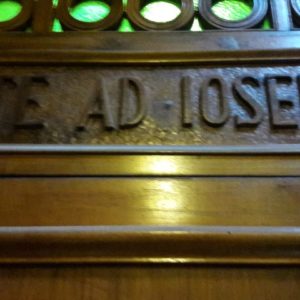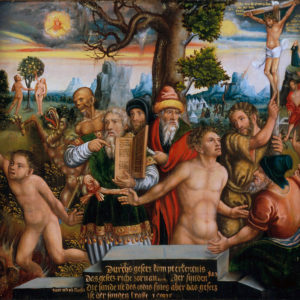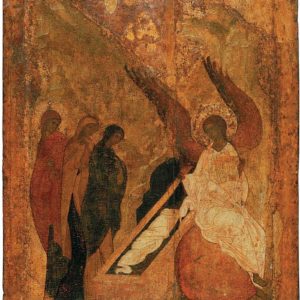It’s more than a little ironic that Protestants who believe that all doctrines need to be found in the 66 books of their Bible claim to be modelling themselves off of the Bereans (Acts 17:10-12), who neither had a 66-book canon nor a belief that all doctrines need to be found in the Scriptures. The Bereans are noble, but they’re not Protestant.
Tag: Bible
Three Christian Views on Excommunication (And Why Two of Them Are Wrong)
Within Christianity, there tend to be three major views of the place of excommunication: (1) We shouldn’t excommunicate anyone, because it’s not merciful. (2) We should excommunicate, because we want to purify the Church of the damned. (3) We should excommunicate, because it’s merciful to sinners. So which of these views is the one endorsed by Scripture?
St. Joseph and the Numinous
Why does the angel Gabriel tell Joseph not to “be afraid” to take Mary as his wife?
(Why You Can’t Have) Jesus Without the Church
Contemporary Christianity is fond of pushing Jesus without the Church. Like its secular counterpart (in which people claim to be “spiritual, but not religious”), it’s an attempt to have the relationship without the rules. If I’m lonely or going through a tragedy, I can pray, but I don’t have to worry about fasting when I don’t want to, or being associated with a bunch of fellow believers that I look down upon.
But Jesus-without-the-Church is a rejection of Jesus.
Does St. Paul Think the Eucharist is Just Bread?
If St. Paul is teaching transubstantiation in 1 Corinthians 10-11, why does he refer to the Eucharist as “the bread”?
Answering 6 Arguments Against the “Apocrypha”
Protestant Bibles have seven fewer books than Catholic Bibles. These seven books are called “the Deuterocanon” by Catholics, and “the Apocrypha” by Protestants (although, confusingly, they also use “the Apocrypha” to refer to several other books, ones that are rejected by Catholics and Protestants alike).
So what’s the basis for the Protestant rejection of these books? Matt Slick, at the popular Protestant website CARM (Christian Apologetics & Research Ministry), offers six reasons, each of which turns out to rely upon lies, deceptions, or double standards.
Does God Owe Us Salvation?
Does God owe us salvation? Yes, if Protestant theologians (from the Reformation down to today) are right. No, if salvation is a free gift, as the Bible says.
3 Surprising Lessons from Jesus’ Weirdest Parable
The weirdest and most troubling of Jesus’ parables is almost certainly the parable of the dishonest manager in Luke 16, in which Jesus presents a parable of a manager who, upon being fired, exploits his position to cut deals with his master’s clients so that he can try to leverage this into a job with them. Rather than being justly furious, the master *praises him* for his ingenuity.
What on earth is going on? Three things to keep in mind with this parable.
10 Tips on the Art and Craft of Evangelization
Are you interested in sharing the faith more? Are you worried that you don’t know how to answer your co-workers’ and friends’ questions? 1 Peter 3:15 calls us to “always be prepared to make a defense to any one who calls you to account for the hope that is in you, yet do it with gentleness and reverence; and keep your conscience clear, so that, when you are abused, those who revile your good behavior in Christ may be put to shame.” That’s a tall order. Here are ten tips that might help.
Sola Scriptura and the Empty Tomb
Was sola Scriptura true during the time of the Apostles?Were the Apostles and the first-century Christians bound to follow Scripture alone? These are the two options. You can claim, despite the clear evidence to the contrary, that the Apostles and early Christians believed in Scripture alone. But doing so both undermines John’s faith in the Resurrection and renders the New Testament irrelevant. Or you can concede that the Apostles and early Christians didn’t believe in Scripture alone. But then you have to throw out all of the alleged “Scriptural proofs” for sola Scriptura, and concede that it’s a post-Apostolic man-made tradition that contradicts the written word of God.









